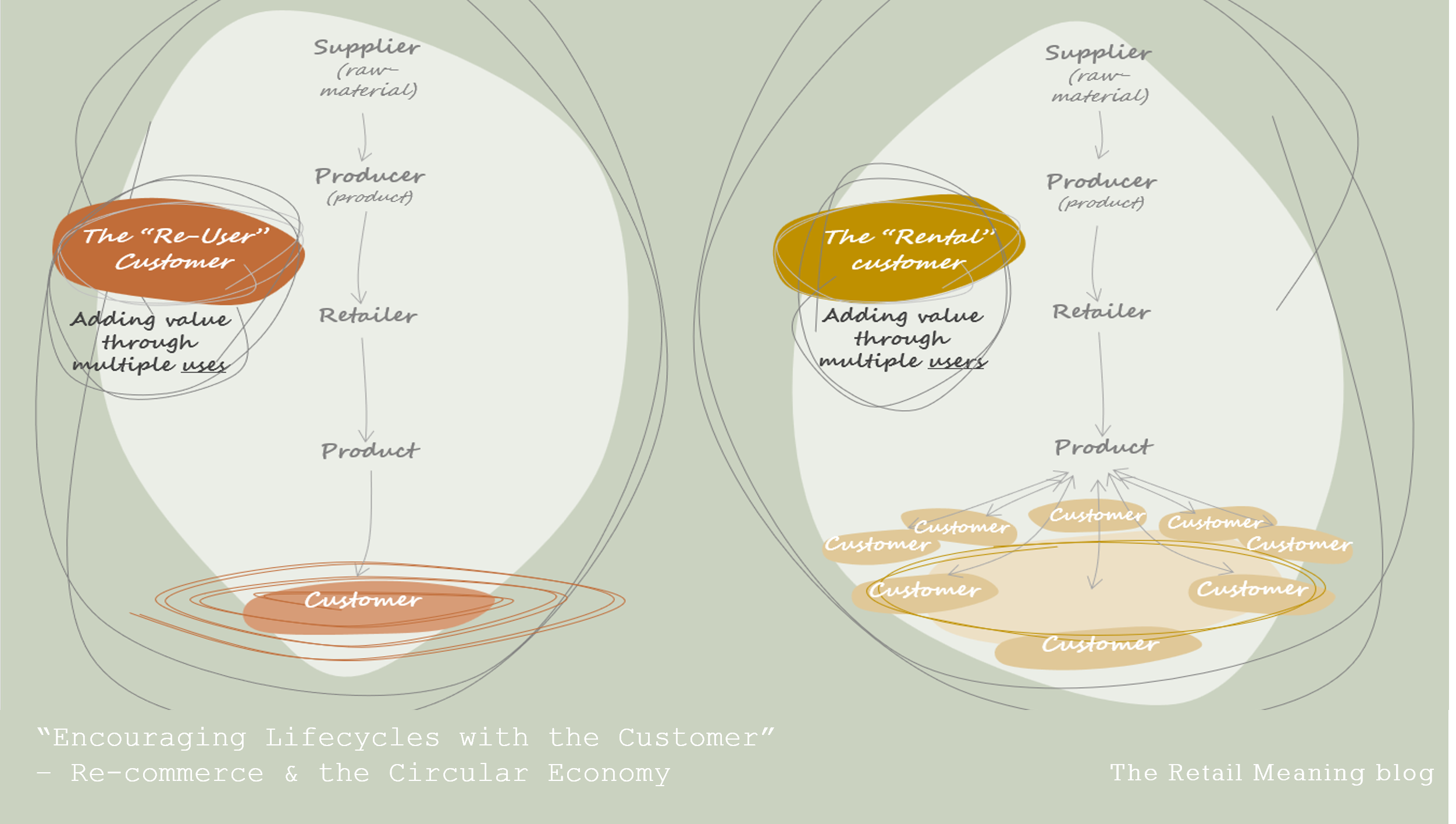Tim Radley:
“Re-commerce & the Circular Economy”
World Consumer Goods & Retail Forum 2022
23rd – 24th June 2022
Amsterdam, Netherlands
The re-commerce model, also known as the circular economy, has become an important strategy for many retail verticals, especially as physical retail continues to lose its footing. But it’s not without its challenges.
In this session, Tim Radley will explore how the disruptors are seeing success and the common pitfalls to avoid
Lifecycles with the customer
The retail industry’s awareness and considerations about the product lifecycle must now be extended forwards to the customer purchase, their relationship with the product, and its disposal. The retail lifecycle must evolve into the product lifecycle.
Changes in retailer mentality
The solution is to make more use, and more uses, of what the customer buys. To turn away from the throwaway, to embrace and enjoy possessions. The terminology needs to move on from possessions to investments, squeezing every hour of use, enjoyment, and value from them.
Rental is now a life choice, led by technology. We no longer possess physical music but download rental versions. What we buy from apple we rent for life. We rent other people’s homes for holidays, rent other people’s cars for convenience, we can now rent furniture for our rented homes, rent clothes for occasions.
The motives are flexibility of lifestyle, the ability to change without financial commitment, convenience on every occasion, and the opportunity to use in volume, just not the same things by the same person. Our experience of variety is greater, but our possession of volume is much less.
Sustainability ‘lock-in.’
Retailers must encourage all customers to become an intrinsic part of their closed-loop cycles. Retailers and customers must collaborate to stimulate the beginning of one buying and merchandising cycle, initiated by the re-usable assets of the previous.
Sustainability ‘lock-in’ not price & availability ‘lock-in’ are becoming the new incentives to customer loyalty.
Every part of a retail business will be under scrutiny. The deepest of retail relationships must now involve customers, colleagues, suppliers, and shareholders, demanding to know a retailer’s conscience, ethical values, and sustainable reality.
Actions speak louder than words. When it comes to sustainability, words alone will be inexcusable if set against a record of inaction and continued exploitation. The customer is waiting to be involved.
